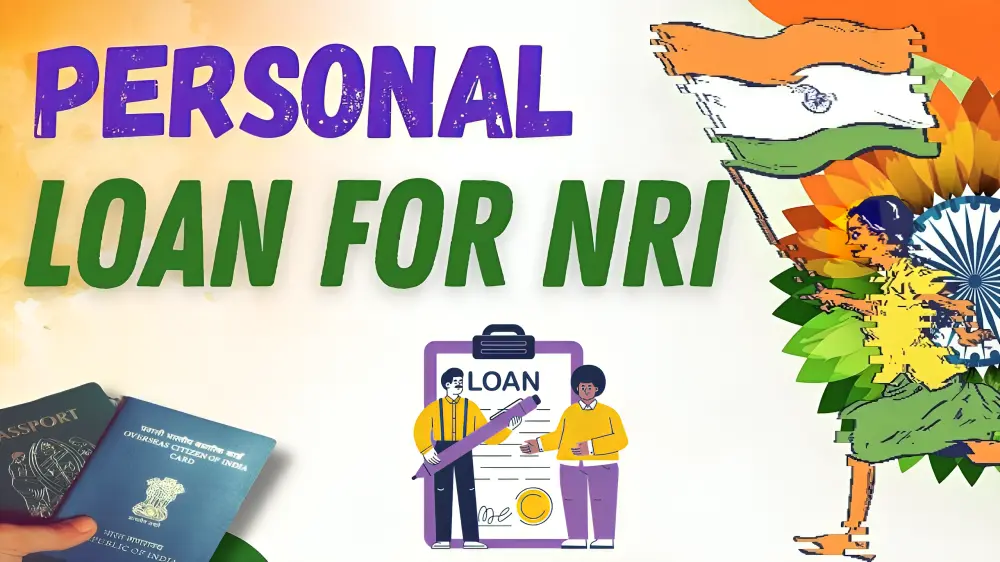Non-resident Indians (NRIs) frequently require financial aid in today’s globalized society for a variety of reasons, including schooling, unexpected medical costs, or home renovations in their native India. It can be difficult for NRIs to obtain a personal loan in India; it requires careful consideration of all relevant factors and strict adherence to rules. We will discuss the complexities of getting a Personal Loan for NRI in India in this article.
What is An NRI Personal Loan?
People may relocate abroad in search of better opportunities, employment, education, family responsibilities, and other factors. It will be challenging and time-consuming to obtain loans from banks in that country if you have recently relocated there or are stationed there for a brief period and require immediate financial assistance. NRI loans can help you in this situation. To meet your personal needs for travel, renovations, medical care, and other expenses in another country, you can apply for an NRI personal loan from any number of Indian banks. Once the requirements are satisfied, several reputable lenders provide NRIs with hassle-free loans. While personal loans are unsecured for citizens of India, they can be both secured and unsecured for non-resident Indians.
Types of Personal Loan for NRI in India
Secured and unsecured loans are the two main categories of personal loans available to NRIs. For loans to non-resident Indians (NRIs), the majority of banks do not require collateral; nonetheless, some lenders do.
- Secured NRI Personal Loan: When an NRI applies for a personal loan in India, some lenders require the pledge of collateral, typically in cases where the applicant has subpar credit or the loan amount is substantial. Any assets owned by the borrower, including shares, NRE/NRO term deposits, FCNR deposits, and other assets, may be used as collateral. To reduce the lender’s risk, the lender may also require a co-applicant who is a resident of India or a guarantor.
- Unsecured NRI Personal Loan: These NRI loans function similarly to traditional personal loans in that no pledge of collateral is necessary. Due to the risk associated with an unsecured personal loan for an NRI, these loans typically have high-interest rates.
Personal Loan for NRI in India Features and Benefits
- NRIs can obtain a personal loan at competitive interest rates. The actual rate offered, however, may vary depending on the borrower’s profile and from one creditor to another.
- Larger personal loans are available to NRIs for a range of personal uses. Nevertheless, the creditor retains the right to raise the sum.
- There are several ways to repay the loans, with terms ranging from 60 months to 10 years. Each creditor has a different amount of time.
- NRIs can obtain personal loans to meet their needs. It is not, however, allowed to be used for illicit purposes like gambling or speculation.
Eligibility Criteria to Get Personal Loan for NRI in India
- For salaried professionals, the age range is 21 to 60 years old.
- The applicant’s financial status and credit score are also taken into account.
- The age range of professionals who work for themselves is 21 to 68.
- Professionals who work for themselves must have two years of recent company experience.
- For salaried professionals, two years of work experience is required, with at least one year spent in the current organization.
- A co-applicant who is the applicant’s close relative is required by banks and NBFCs. The co-applicant may be an individual who works or is not employed.
- However, it should be mentioned that there may be variations in the qualifying requirements for various creditors. For applicants seeking personal loans, the majority of banks and NBFCs have stringent income requirements.
Documents for NRIs to Apply for Personal Loan
- Passport pictures
- Bank statements for the previous six months, both domestic and foreign.
- A copy of the applicant’s valid visa and passport
- PAN card, Aadhar card, or voter ID are examples of identity documentation for both the applicant and co-applicant.
- Salary certificates (in English) or pay stubs from the previous six months serve as proof of income.
- employment documentation, such as an appointment letter, an active work permit, and HR and official email addresses.
- Aadhar card or passport as proof of address for both the applicant and the co-applicant. particularly the proof of address and residency permit issued by the Indian Embassy or Consulate.
How to Apply for an NRI Personal Loan?
Personal loan applications are usually very easy to complete. NRIs may find it difficult to apply for personal loans in India from other nations, though. Since the majority of banks have NRI helpdesks, you can get in touch with them to find out if loans are available. Compared to other customers, NRIs who are already clients of these banks may find it easier to obtain loans. You can contact the bank by phone or email with inquiries. If someone has family in India, they can send them to the branch office to inquire about the status of these loans. To assist the applicant with the loan application process, get in touch with the customer service department.
Conclusion
In India, getting a personal loan for an NRI requires navigating some complicated requirements, including loan types, eligibility requirements, and documentation requirements. Secured and unsecured NRI personal loans meet a range of needs, but there are strict requirements, such as work experience and age. Even though the application process is usually simple, loan approval can be accelerated by utilizing pre-existing bank relationships and keeping in touch through NRI helpdesks. Understanding the necessary paperwork, qualifying requirements, and application processes is essential for a seamless loan process in India.
